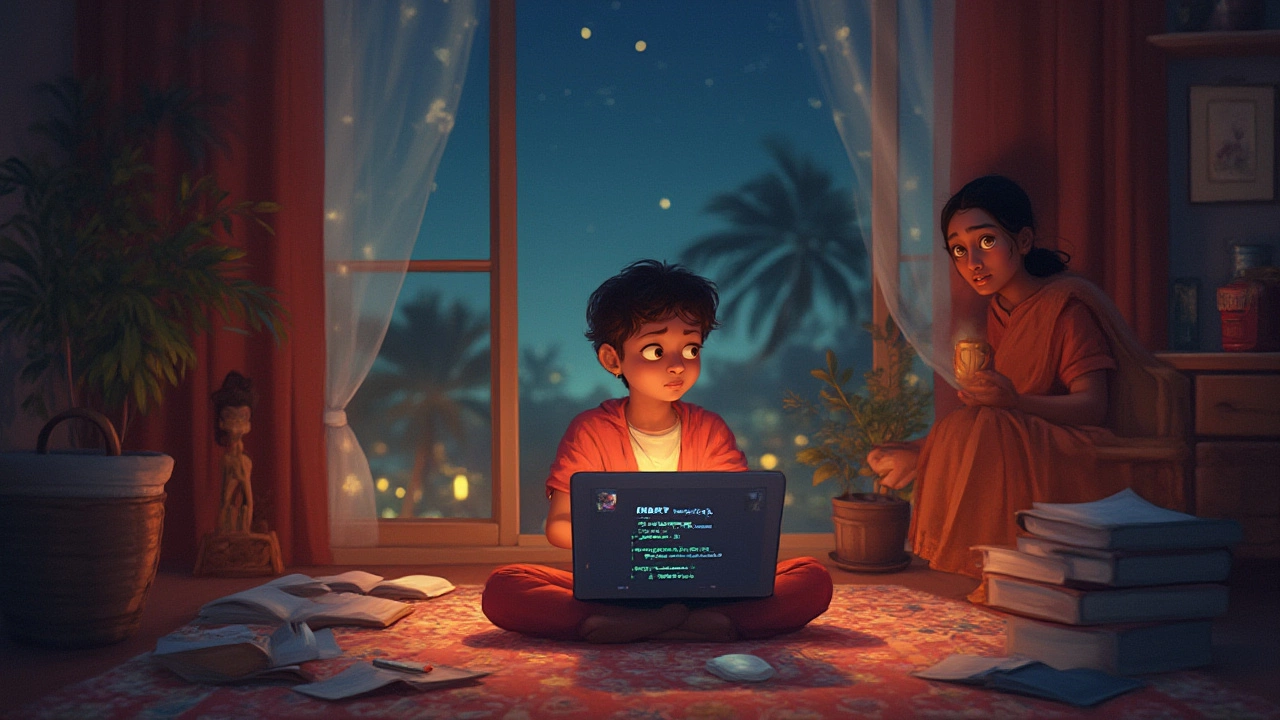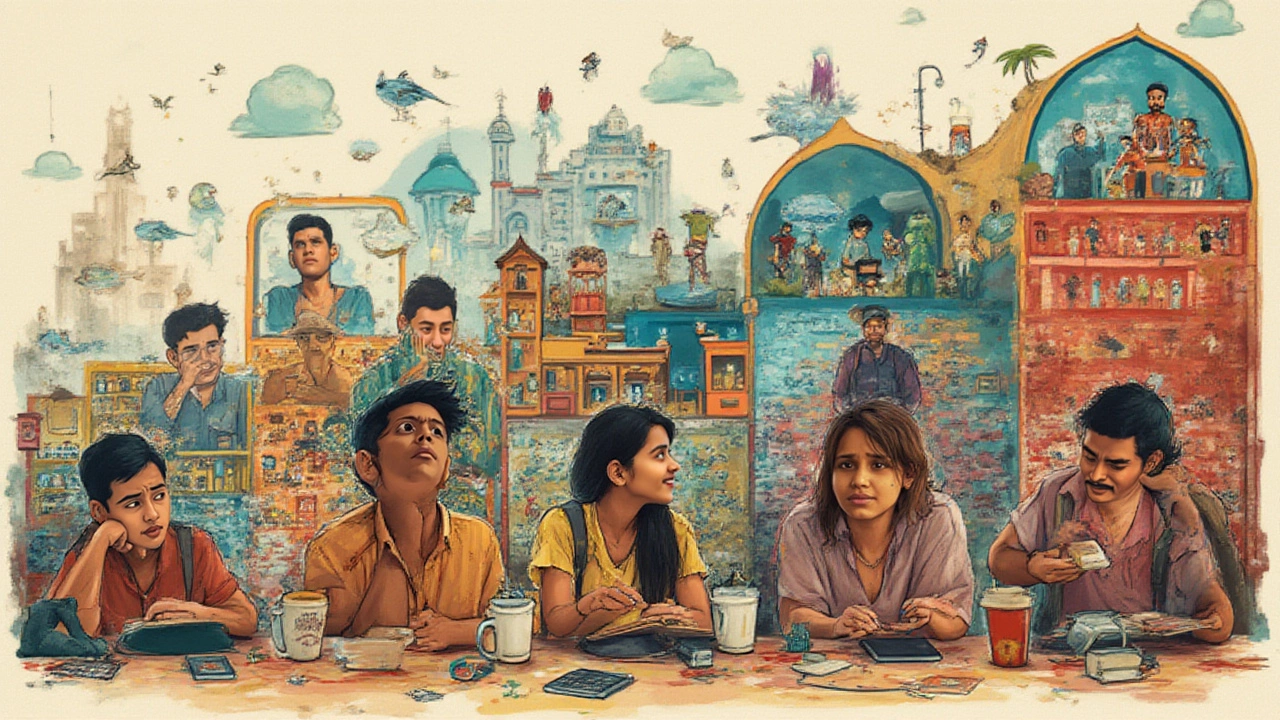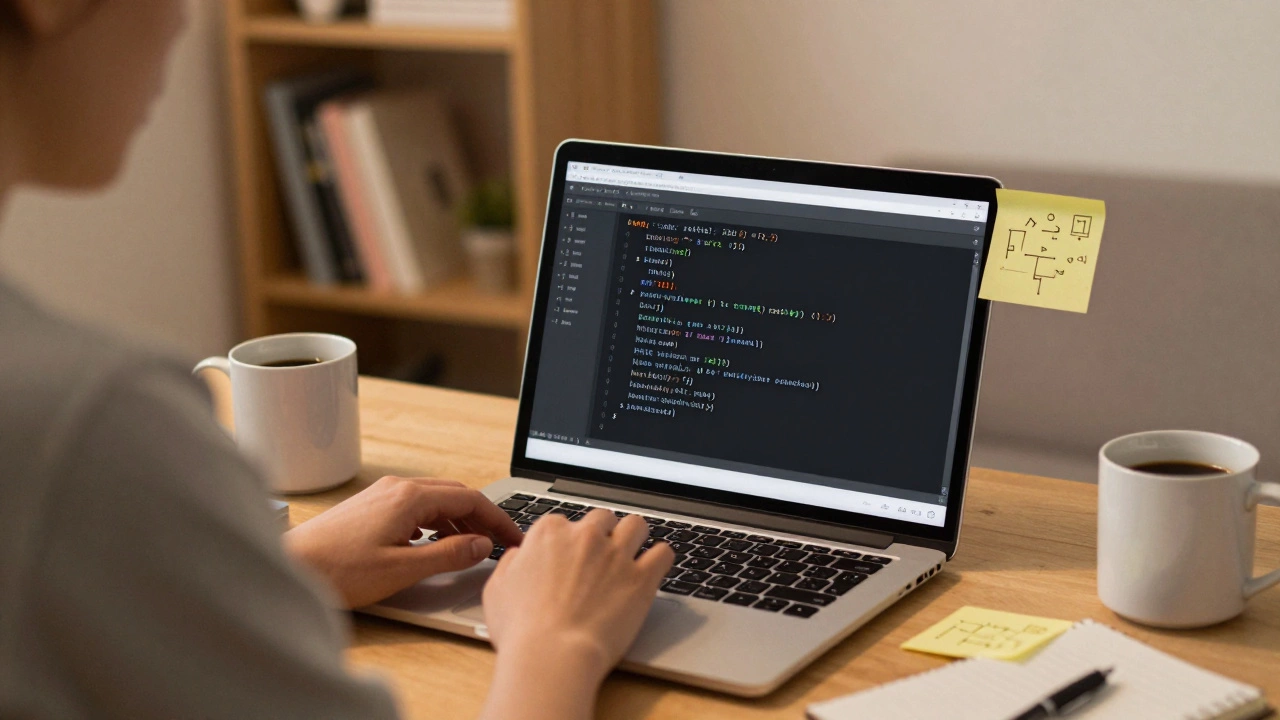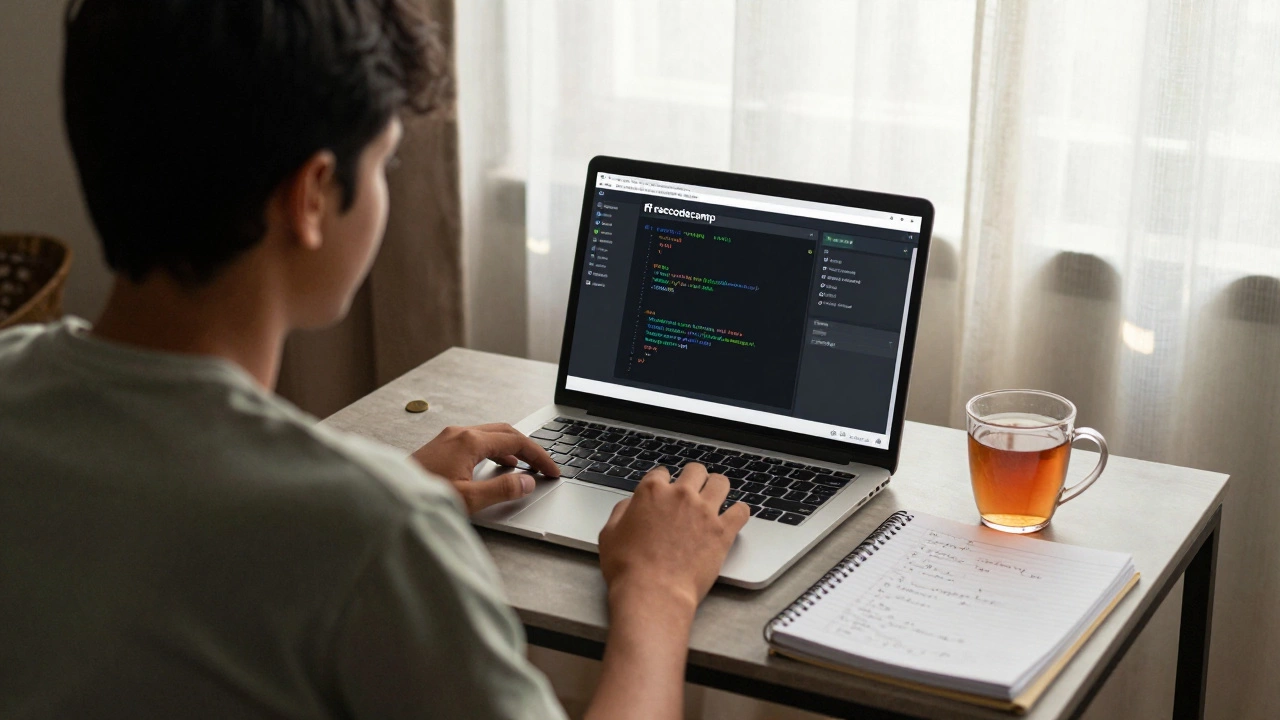The word ‘coding’ makes a lot of people think of mysterious symbols, endless screens of green text, and super-smart people tapping away at a speed you can barely follow. In reality, learning to code is a little less ‘sci-fi thriller’ and more like learning to ride a bike for the first time — and yes, falling off at least a few times is part of it. The awkward truth? Coding does have a learning curve, and there’s no magic way to dodge some confusion at the start. But thousands of people pick it up every single day, including folks who never thought of themselves as “techy.” The trick is understanding what’s genuinely tricky about it — and what’s just noise.
Why Learning Coding Feels Tough at First
Most beginners feel overwhelmed not because the concepts are impossible, but because the world of programming shows up with its own language, its own logic, and what feels like a mountain of unknown terms. Imagine landing in a country with street signs you can’t read, local slang you don’t get, and everyone expecting you to order coffee in three different dialects at once. That’s what day one of coding feels like for a lot of people. Even kids in high school, tossed into their first IT class, feel that punch of "I have no idea how to even start." Adults switching careers? Same deal, just with more coffee.
Coding really means getting a computer to do exactly what you tell it — step by tiny step — by putting instructions together in a way the machine can understand. Unlike humans, computers can’t guess your intent. If you miss one little thing, they’ll throw errors, blank screens, or (worse) unexpected results you’ll waste hours trying to trace back. In the 1970s, computers followed punch cards. Today, you’re more likely typing code in Python or JavaScript into colorful editors. The rules, though, are pretty much the same: one typo, one forgotten parenthesis, and the machine says, “Nope.”
A study by Stack Overflow in 2023 found that over 68% of new coders say their biggest hurdle was getting used to the way code ‘thinks’. Not the syntax, not the math, but literally the logic: breaking big problems into tiny steps, and turning fuzzy ideas into crystal-clear instructions. And that doesn’t come naturally, even if you’re good at math or puzzles. It’s a different muscle — like learning to juggle with your less-dominant hand. Yet, this discomfort usually fades after your first few projects, and suddenly, “Hello World” isn’t a foreign phrase but your wonky first bike ride without training wheels.
What a lot of schools and online tutorials get wrong is this: they firehose you with theory, but skip letting you tinker early on. Humans learn best when they play — so why not code up a game or automate something annoying in your daily life, right from the start? It’s way more motivating than memorizing what a ‘variable’ or ‘conditional’ is on day one. Just look up the history of some of today’s coding legends, and you’ll find stories of them hacking simple chatbots, tiny arcade games, or automating silly stuff at home, way before they ever cracked a textbook.
Yes, frustration is almost guaranteed. Coding is unforgiving in the smallest details. But that’s part of the magic: anyone who breaks through that initial wall gets rewarded, fast, with a working project—and a genuine sense of "I just made something out of nothing." That first rush keeps millions coming back, even when it gets tough later.

The Most Common Roadblocks (and How to Smash Through)
Ask any group of newbies what trips them up and you’ll get a pattern. A lot of pain comes from expecting machines to “figure it out” like humans can, only to discover computers have zero imagination. Below are the usual headaches, along with ways to actually dodge or fix them. These aren’t just abstract struggles — they’re the exact bumps real learners hit every day, and there’s no shame in them.
If you peek into online forums, Reddit threads, or Discord communities in 2025, you’ll find plenty of confessions: people copy-paste code that ‘should’ work but doesn’t, stare helplessly at cryptic error messages, or get paralyzed trying to pick which language to start with. Here’s a reality check — 90% of professional developers say they still Google error messages every week, even years into their career. The difference? They’ve learned not to take it personally, and they lean on the giant support system the internet provides.
- Syntax errors: These are the coding world’s equivalent of tripping over your own feet. Miss a comma, use the wrong bracket, or get a keyword slightly wrong, and you’ll get a very unfriendly error. What helps: Just slow down, check your work line by line, and let tools like VS Code or Replit flag mistakes. Eventually, spotting these just becomes muscle memory.
- Choosing a language: People spend weeks arguing Python vs. JavaScript vs. C++. The truth? Pick one you enjoy or a language that has active beginner communities. Python remains the friendliest for raw beginners because it reads almost like English. Once you learn one language, learning a second or third (and you will want to, eventually) is much easier.
- Dealing with errors: Error messages are often cryptic. Here’s a secret: copy and paste them into Google, and you’ll usually find a solution on Stack Overflow or a similar forum. Don’t be shy about asking for help; most programmers love fixing puzzles, and your problem isn’t as unique as it feels.
- Project overwhelm: The urge to build the next Facebook or a killer AI chatbot leads many to quit early, frustrated when things fall apart. Start tiny. Make a number-guessing game or automate something small, like a weekly email. Nothing keeps you moving like seeing real, working results, even if they’re silly.
- Not taking breaks: If you’re stuck, stop banging your head against the wall. Go for a walk. Your brain will keep chewing on the problem in the background, and the “aha!” moment usually hits away from the screen. Science backs this up – Stanford researchers found mental breaks actually lead to better code over time.
There’s another reality nobody tells you: every programmer spends half their time fixing their own mistakes, not churning out flawless code. The secret sauce is resilience, not raw genius.
To see just how common the main roadblocks are, check out this breakdown from recent beginner coder surveys:
| Challenge | % of Beginners Reporting This |
|---|---|
| Understanding problem logic | 68% |
| Fixing error messages | 62% |
| Staying motivated | 56% |
| Choosing a language | 43% |
| Finding practical projects | 39% |
Trust me, new or old, you’re in a big crowd every time you think, “Maybe I just don’t get it.”

Making Coding Less Scary: Tips and Resources that Actually Work
Alright, so what if you want to jump in, but keep bouncing off those first tough sessions? The best way forward isn’t to memorize hundreds of rules — it’s to build muscle memory and get used to the mental model that coding is mostly about clear instructions, lots of trial and error, and a willingness to fail-forward. There are ways to make the journey way smoother, and most don’t require fat wallets or exclusive clubs.
- Learn by doing, not just watching. Tutorials and YouTube explainers are fine, but nothing sticks like typing code yourself, breaking stuff, and seeing what happens. Sites like freeCodeCamp or Codecademy give you playgrounds where mistakes cost nothing.
- Join communities early. Hanging out in Discord servers, Reddit groups, or local meetup events with other beginners gives you accountability. Coding doesn’t have to be lonely, and it’s way easier to stick with it when you’ve got cheerleaders (or commiserators) nearby. Ask dumb questions — you’ll find the pros love to answer.
- Pick projects you care about. Coding for the sake of coding gets dull, fast. Automate something annoying (like renaming hundreds of files), build a silly chatbot, or create a personal website. Passion goes a long way toward powering through rough patches.
- Don’t panic over theory. You can be a strong coder and have no clue what a “Big O notation” is. Most of the heavy theory gets learned as you build bigger things. Get familiar with basics: variables, functions, conditionals, and loops. Worry about the deep stuff later.
- Embrace mistakes. You’re going to break things. You’ll see the dreaded ‘null’, ‘NaN’, ‘undefined’, or even crash your own laptop. Welcome to the club. Half the joy is fixing what you broke.
- Set aside regular short sessions. Coding an hour a day for a month teaches more than one eight-hour binge session. It’s all about consistency. Stack Overflow’s annual developer survey shows those who stuck with small daily doses learned faster than those who tried to cram.
- Track your progress. Keep a journal, blog, or just a messy Google Doc where you list what you’ve built and what you struggled with. Over time, you’ll look back and realize how far you’ve come — and get pumped for what’s next.
Ready to give it a go? Python’s still the best entry point for almost everyone (it’s got huge support, reads like English, and handles everything from web apps to robots). JavaScript’s unbeatable if you want things to show up on websites. If you get lost, there are whole online bootcamps built for total beginners, and nearly all big tech companies (Google included) offer free intro courses.
And here’s the kicker: tech companies in 2025 are desperate for fresh coders, not just Stanford grads. A lot of open jobs list “no degree required,” just proof you can build something and solve problems. Coders from all backgrounds — library workers, delivery drivers, you name it — have cracked into tech just by staying persistent. For many, “coding for beginners” was step one in a totally new chapter.
No one’s born with a brain wired for JavaScript or Python. It’s just a craft you pick up by trying, failing, and repeating. If you hit a wall, take a breath, post your question, and remember: every senior programmer was a clueless beginner, too. You’re in the best position ever to get started, even if it feels tough at the start. Every breakthrough — even just fixing a tiny bug — is a step forward.




